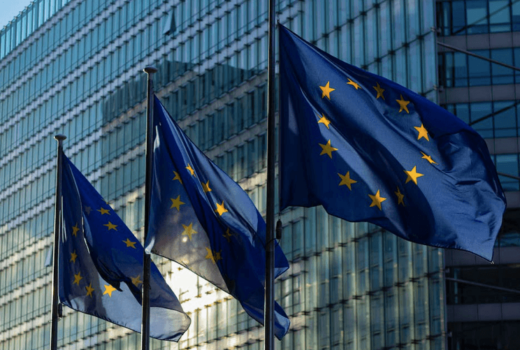Europa verkent nanotech
Nanotechnologies have enormous potential benefits for manufacturers, consumers, employees, patients and the environment. They will bring more energy and resource efficient processes, improve computer memories and processors and could usher in a new age of customized pharmaceuticals and medical procedures. While current EU legislation covers in principle the challenges for health, safety and environment with regards to nanomaterials, there is further need for research and international cooperation. As more and more products involving nanomaterials are reaching the market, the European Commission will start a consultation with stakeholders and Member States in order to increase knowledge and awareness about the potential of nanotechnologies and to continue to ensure an adequate protection of nature, environment and health.
Commission Vice- President Günter Verheugen, responsible for enterprise and industry policy, said: “A reliable and stable regulatory framework is essential for enabling the EU’s industry to fully exploit the advances of nanotechnologies. With the right structures in place they will boost innovation and contribute to growth, employment creation and competitiveness.” Employment and Social Affairs Commissioner Vladimir Špidla added: “Nanotechnologies hold out exciting opportunities for creating new jobs in Europe, but we must make sure that any potential risks to workers’ health and safety are properly addressed in the relevant EU workers protection legislation.”
Important economic, social and environmental potential
Nanotechnologies process materials are at the atomic, molecular and macromolecular scale, where properties may differ from those seen at a larger scale. Products based on nanotechnologies are already in use and analysts are predicting explosive economic growth in the sector over the coming decade. Nanotechnologies will boost innovation in areas such as public health, Information and Communication Technology (ICT), the manufacturing industry, environmental protection, energy, transport, security and space. Forecasts for the world market for nanotechnologies span between 750 to 2000 billion € up to 2015, and the potential for the creation of jobs is estimated to 10 million nano-related jobs by 2014, i.e. 10% of all manufacturing jobs world-wide.
Nanotechnologies are covered by existing legislation such as REACH, the current legislative framework for chemicals, and other specific-sector legislation for food, cosmetics, medicine and etc.,
Improving the knowledge base
The Communication underlines the need for improved routine monitoring devices and better data on toxic and eco-toxic effects, and improved test methods to generate such data. Several aspects of nanomaterial safety require international collaboration to ensure that the nomenclature, standards and test methods can be compared globally, and that the scientific methods used for regulatory purposes are internationally the same. Much work has already been done in this area related to the Working Party on Manufactured Nanomaterials of the Organisation for Economic Cooperation and Development (OECD), while under the OECD Committee on Scientific and Technological Policy (CSTP) a Working Party on Nanotechnology was established in March 2007. The objective of this Working Party is to promote international co-operation which facilitates research, development and responsible commercialisation of nanotechnology in member countries and in non-member economies.
Next steps
Knowledge about the characterisation of nanomaterials, hazard and exposure needs to be improved. The Commission is therefore backing targeted actions in a number of areas and at different levels, particularly in the field of research and development under the Research Framework Programmes FP6 and FP7 and the Commission’s Joint Research Centre.) Such activities are coordinated and discussed with stakeholders and in the framework of the OECD and the International Standardisation Organisation (ISO) and through international cooperation.
The Commission will also engage in an open dialogue with citizens and stakeholders at large to accompany the correct application of existing legislation to the new products arriving on the market.
Meer informatie over ht thema en de Europese ontwikklingen terzkae vindt u hier:
Regulation
Nanotech research
Overview
Meest Gelezen
Vrouwen houden universiteit draaiende, maar krijgen daarvoor geen waardering
Hbo-docent wil wel rolmodel zijn, maar niet eigen moreel kompas opdringen
Wederom intimidatie van journalisten door universiteit, nu in Delft
‘Waarom het nu niet lukt om medezeggenschap in hbo te versterken’
‘Sluijsmans et al. slaan de plank volledig mis’

